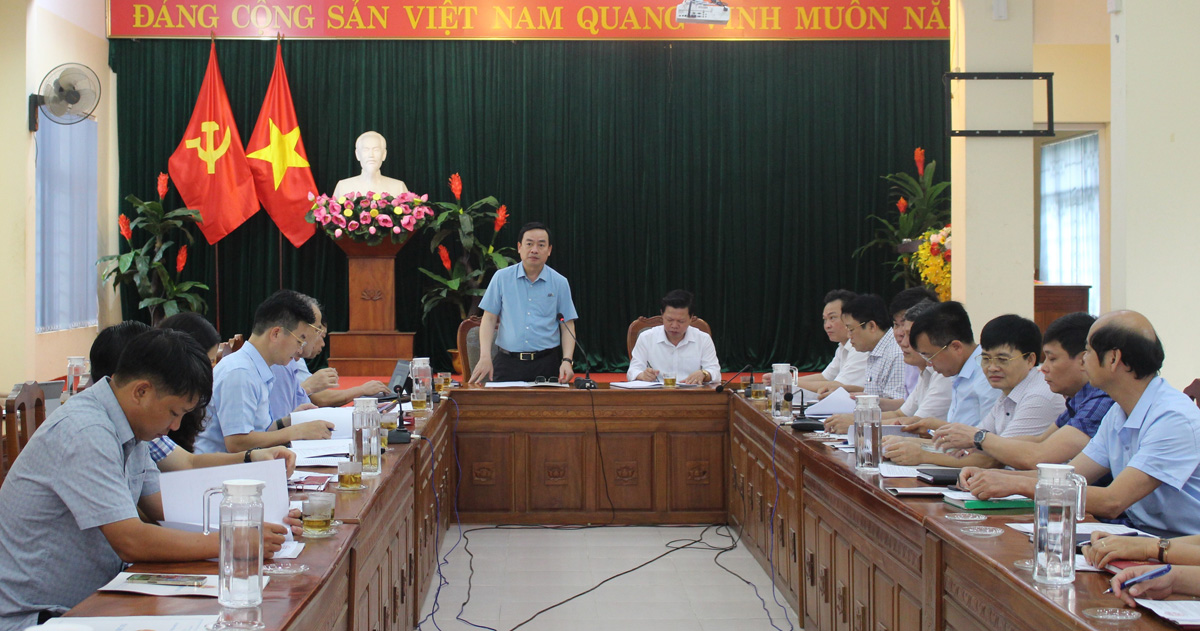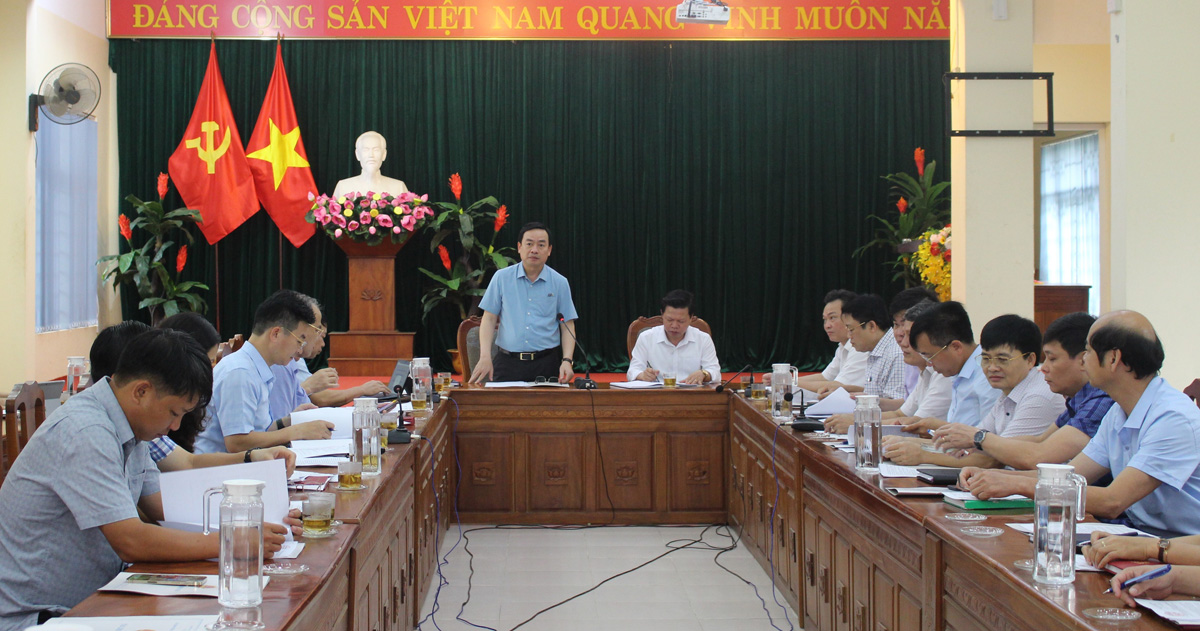
(HBO) - The provincial People’s Committee on April 23 held a working session with the People’s Committee of Yen Thuy district on measures to ensure budget collection and develop industry-handicraft and a number of other issues. Vice Chairman of the provincial People’s Committee Quach Tat Liem chaired the event.
 Quach Tat Liem, Vice Chairman of the provincial
People’s Committee concludes the working session.
Quach Tat Liem, Vice Chairman of the provincial
People’s Committee concludes the working session.
According to a report
by the Yen Thuy People’s Committee, over the years, industry and handicraft
production of Yen Thuy has seen progress, but growth in production value is
still low at about 6 percent per year in the 2016-2020 period.
In the first quarter
of 2021, the value of the district’s industry sector reached 317 billion VND,
up 7.1 percent year on year. So far, Yen Thuy has 15 companies, three
cooperatives and 560 facilities operating in industry-handicraft sector.
As of April 19, total State
budget collection in the district was 31.61 billion VND, fulfilling 24 percent
of the target. Collection from taxes, fees and other sources was 16.25 billion
VND, while that from land use fee was over 15 billion VND.
The People’s Committee
of Yen Thuy proposed that the provincial People’s Committee of Hoa Binh and
departments and sectors support the district in attracting investment in Lac
Thinh industrial park, while excluding unfeasible projects such as the Hang
Tram industrial cluster out of the industrial park planning.
The district asked for
permission to expand the acreage of Lac Thinh IP from 220 hectares to about 830
hectares in 2030, along with adding the 550-hectare Bao Hieu IP to the IP
planning.
It also asked for early
allocation of funding for the district to implement a project to upgrade the
power supply system in remote and extremely difficult areas in the province.
Concluding the session,
Liem lauded the achievements that Yen Thuy has gained in implementing
socio-economic development goals, with a number of targets exceeding the set
goals. However, he pointed out that the district has yet to optimise its
potential and advantages in geographical location and transport.
He asked the district
to direct relevant agencies to coordinate with departments and sectors to
improve planning work, with special attention paid to major transport projects,
thus creating motivation for development.
According to data from the Hoa Binh Provincial Party Committee, the industrial production index for the first six months of 2025 is estimated to have increased by 20% compared to the same period last year. This marks the highest year-on-year growth rate for this period since 2020.
In the first six months of 2025, Hoa Binh province’s export turnover was estimated at 1.145 billion USD, marking an 18.11% increase compared to the same period in 2024. Import turnover was estimated at $ 804 million, a 17.15% increase, which helped the province maintain a positive trade balance.
The lives of the ethnic minority farmers in Tan Lac district have gradually improved thanks to the new directions in agricultural production. This is a testament to the collective strength fostered through the professional associations and groups implemented by various levels of the district’s Farmers’ Union.
With the motto the "product quality comes first,” after nearly one year of establishment and operation, Muong village’s Clean Food Agricultural and Commercial Cooperative, located in Cau Hamlet, Hung Son Commune (Kim Boi district), has launched reputable, high-quality agricultural products to the market that are well-received by consumers. The products such as Muong village’s pork sausage, salt-cured chicken, and salt-cured pork hocks have gradually carved out a place in the market and they are on the path to obtaining the OCOP certification.
In the past, the phrase "bumper harvest, rock-bottom prices" was a familiar refrain for Vietnamese farmers engaged in fragmented, small-scale agriculture. But today, a new spirit is emerging across rural areas of Hoa Binh province - one of collaboration, organisation, and collective economic models that provide a stable foundation for production.
Maintaining growing area codes and packing facility codes in accordance with regulations is a mandatory requirement for agricultural products to be eligible for export. Recently, the Department of Agriculture and Environment of Hoa Binh province has intensified technical supervision of designated farming areas and packing facilities to safeguard the "green passport" that enables its products to access international markets.



 Quach Tat Liem, Vice Chairman of the provincial
People’s Committee concludes the working session.
Quach Tat Liem, Vice Chairman of the provincial
People’s Committee concludes the working session.